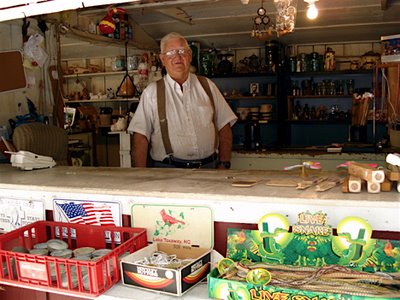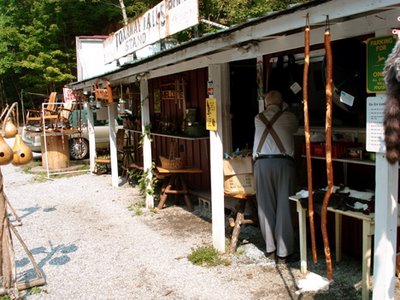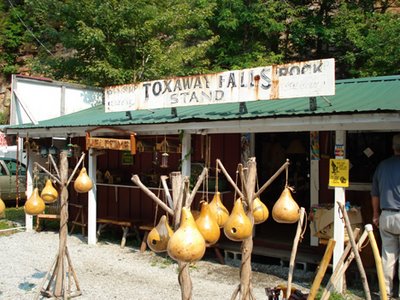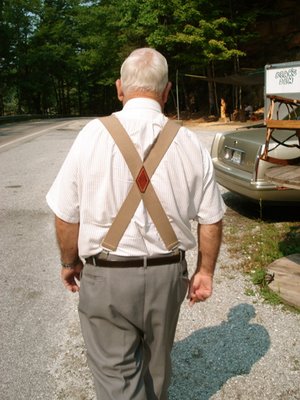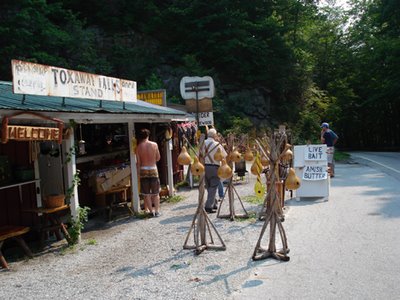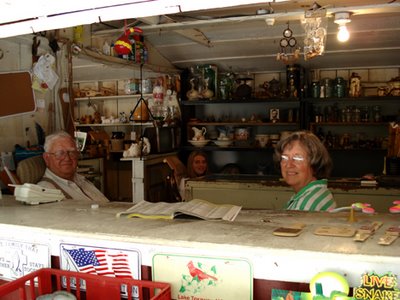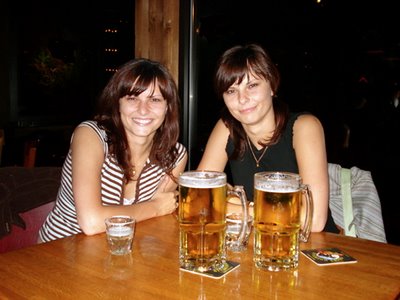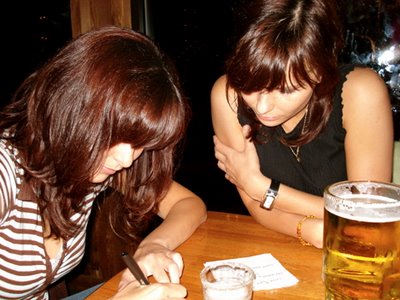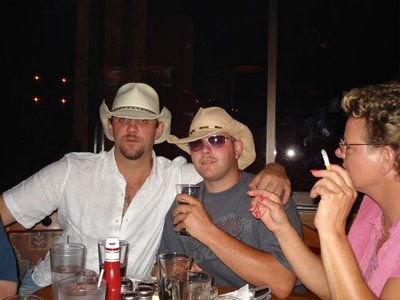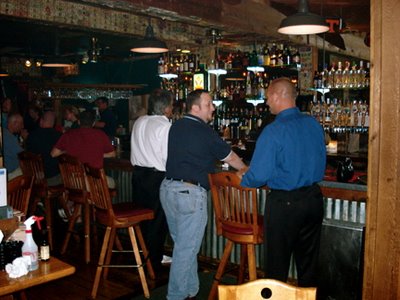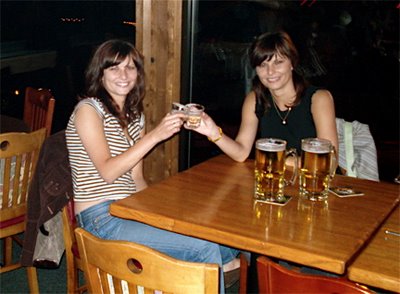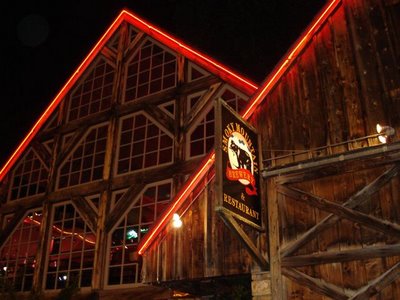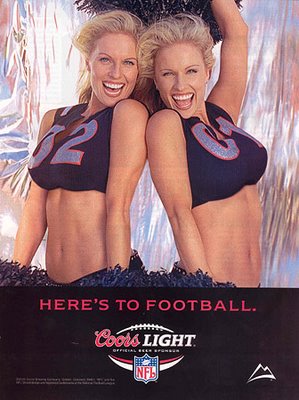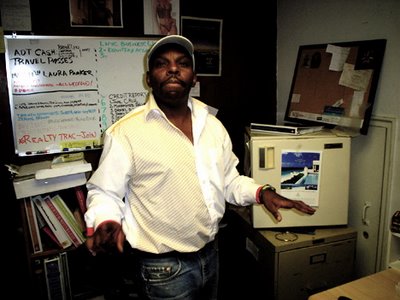
In 1958, Alonzo was born on Roosevelt Island, a narrow two-mile long island situated between Manhattan and Queens. Shortly, thereafter, he moved with his family to Harlem where they found residence in New York City subsidized housing. At the time Harlem was predominately African American and Puerto Rican. The only white people Alonzo encountered were his teachers at school, who failed to teach him about the civil rights movement, racism, slavery or anything related to the dark history between whites and blacks in America. People just didn't talk about race. “There was a running joke in Harlem that said, don’t talk about the white man in Harlem because you let him in the house through TV everyday”, he explains.
When Alonzo was fifteen, his father found a higher paying job and the family was required to move to a different housing unit in the Bronx called Marble Hill, which had a large population of white residents from various European backgrounds. At first, Alonzo naturally gravitated to the black teenagers in his new neighborhood, but soon met his first white friend, Irwin, a Jew. “I had no idea that Irwin was Jewish, but then I noticed that he was hanging out with all these white teenagers, so I shifted away from my black group of friends towards his friends who I found very interesting and different.” The white teenagers loved Alonzo, especially his wild personality and most treated him like he was famous. He was the only black person in their group, and Alonzo found the extra attention they gave him flattering.
After one year of living in the Bronx, Alonzo faced the harsh reality of becoming an adult. At the age of sixteen he had never known the real meaning behind the "N" word. His parents had always tried to protect him from racism and socially the word was not mentioned. "As a child it was not like it is today. People where not saying “Yo nigga' this and that”, explains Alonzo. Television shows at that time were highly censored too, and it never occurred to him that there were so few African Americans on the air. “Occasionally on Ed Sullivan, Smokey Robinson or someone black would be on and I can remember thinking it was really special, but I did not understand why at the time”, says Alonzo.
Then one summer day while Alonzo was hanging out with a group of white teenage girls in Marble Hill, listening to funk on the radio, and teaching them dance moves, a pale, blond-haired, blue-eyed boy nicknamed Pee-wee walked up to him and said, “No, we’re not going to put that 'nigger' music on”. “Pee-wee was a real asshole”, says Alonzo, “and it never dawned on me that I was the Negro kid showing these white teenagers, who were demanding my attention, Negro moves. But I guess if you were on the outside looking in, that’s what was going on there.” When Pee Wee uttered the expletive that day, the meaning and power of the word suddenly hit Alonzo like a ton of bricks. “Oh I get this...this is what they have been hiding me from, and this is what that word means. It means a black person and nobody told me; my mother never told me; my father never told me.” The realization made Alonzo so distraught that he began to cry and his white girlfriends came rushing to his side, grabbing and embracing him. The girls scorned Pee Wee by shouting that he was disgusting while demanding that he leave. But it was too late, the experience had left a lasting impression, and while walking home that day Alonzo remembers looking at people differently. “ I would walk past people and began to classify them saying I am black, he’s white, and he’s Puerto Rican, because I was struck with this new awful awareness and for about two days I couldn’t shake it”, says Alonzo. In hindsight, it was one of those earth-shattering realizations Alonzo needed to deal with, but he was so surprised that no one had taught him this crucial lesson at home or in school. “I finally understood what Martin Luther King was about,” explains Alonzo. He was different. Black.
After a week of contemplating the situation, Alonzo decided to return to the park in Marble Hill where all his white friends gathered, night after night, doing drugs and consuming large amounts of alcohol. His friends, unaware of the questions going through his mind, asked him to roll a joint because they could not do it as well as he. “All of the sudden I saw these white teenagers as Martians, and said to myself 'You’re the only black one'. They didn’t know that I was head tripping”, says Alonzo. He remembers also taking the subway down to midtown Manhattan, stepping outside, and feeling awestruck by the dissimilarity of environments--as if he were on the moon--and would then promptly return to the Bronx and compare the differences. For example, the white ladies on the subway in midtown would sit cross-legged reading the New York Times, as opposed to minorities in Harlem and the Bronx reading The Daily News, consisting of mostly pictures and the winning numbers for horses and lotto.
At one point Alonzo attempted to return to hanging out with his black friends, but quickly gravitated back to his white ones who had cars, and would take him to exciting places on the weekends, such as the Hamptons. “My parents were very concerned that I was hanging out with so many white people, but there was no stopping me”, says Alonzo. Every time he ran out of the house his mother would say to him, “Alonzo!, don’t let those white boys go push you up a tree.” Alonzo says he was fortunate and had very few racially charged experiences after old Pee Wee. He was well liked among the African Americas, Caucasians and Puerto Ricans in the neighborhood, who all nicknamed him 'Knox'. “I would take it upon myself to infiltrated each group because I new exactly what I was doing. For this aspect, I really liked myself because, I was really a dynamite liaison, and was able to keep the harmony of this whole block; and I was just so popular.” At that time, Alonzo was beginning to acknowledge and take pride in being a black man, because he inevitably knew that society would always view him as a such, regardless of the peers whose company he chose.
Everything was going great for Alonzo and when he turned eighteen the beautiful, fair-skinned, blond-haired bombshell named Colleen Bray walked into his life, asked him out, and they instantly became boyfriend and girlfriend. "Colleen was Irish and the funkiest female in the neighborhood especially for her age.... and she was my baby!", says Alonzo. This was Alonzo's first experience dating a white woman and he fell in love quickly. "The racial difference was really a trip, and when we walked down the street we would get all sorts of car horns" he says. One afternoon, while walking down the street together, Colleen's mother pulled up to them unexpectedly, rolled down the window, and demanded that she get into the car. Alonzo, struck with terror, thought for sure that this would be the last time he saw his beloved Colleen. But to his surprise, Colleen stood up to her mother and said "No!", refusing to get in the car, and angrily her mother drove away. Alonzo had never quite seen a person be so powerful and resolute as Colleen. But then again, that's why he liked her...
To be continued.....
"I was born an Aquarius, therefore I am a natural brotherhood promoter and the more different you are from me the more I am probably going to like you, that’s why I am so into interracial dating” Quote by Alonzo "Knox" who has been dating white women for over thirty years.

Alonzo at the Futon Warehouse in Manhattan, where he lives and works.
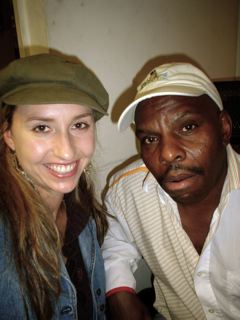
Me and Alonzo.
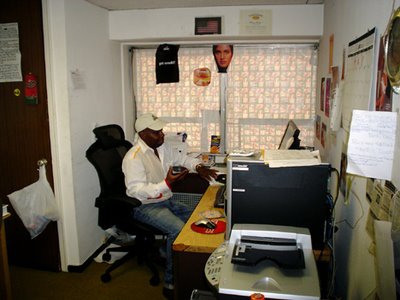
Alonzo's Office
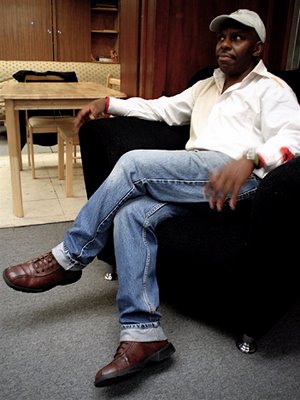
Alonzo as we talk.

